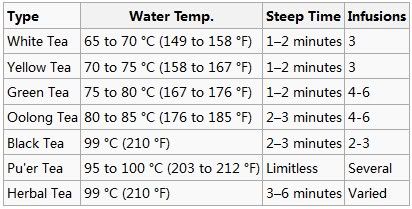Flatrate Air Parcel $3.99. Worldwide Free Shipping on Orders Over $50.
|
Categories
Tags
|
Tea Info Introduction
Welcome to West Lake Tea House's Tea Info Center.
Green-Tea-Shop is an online tea store offers a variety selection of fine Green tea, Black tea, Pu-erh tea, Oolong tea, White tea, Yellow tea, Flower & Herbal tea, Fruit tea, Organic tea, Tea accessories, Coffee and more. Direct from the source to every corner in the world.
About Tea
Tea, a traditional beverage made from steeping the processed leaves, buds, or twigs of the tea bush (Camellia sinensis) in water.
After water, tea is the most widely consumed beverage in the world. It has a cooling, slightly bitter, astringent flavour which many people enjoy.
Different varieties of teas only vary by the region it was grown, the time of year picked, and the processing method. Teas can generally be divided into categories based on how they are processed. There are at least six different types of tea: white, yellow, green, oolong, black, and post-fermented teas, of which the most commonly found on the market are white, green, oolong, and black. Some varieties, such as traditional oolong tea and Pu-erh tea, a post-fermented tea, can be used medicinally.
Tea is traditionally classified based on the techniques with which it is produced and processed.
Tea Preparation
The traditional method of making a cup of tea is to place loose tea leaves, either directly or in a tea infuser, into a tea pot or teacup and pour hot water over the leaves. After a couple of minutes the leaves are usually removed again, either by removing the infuser, or by straining the tea while serving.
The best temperature for brewing tea depends on its type. The higher temperatures are required to extract the large, complex, flavorful phenolic molecules found in fermented tea, although boiling the water reduces the amount of dissolved oxygen in the water.
Tea Benefits
1. Tea contains antioxidants. Antioxidants can help slow down the aging process, and help cells regenerate and repair.
our mouths.
the added bonus of providing antioxidants as well.
often the cause of strokes and heart attacks.
Diabetes.
the tea drinkers to have levels up to five times higher.
protective effects of drinking tea to make adding tea to your list of daily beverages.
per day can result in losing one pound per week.
10 or more years had higher-bone mineral density in their spines than those who had not.
Storage Tips
Tea has a shelf life that varies with storage conditions and type of tea. Black tea has a longer shelf life than green tea. An exception, Pu-erh tea improves with age. Tea stays freshest when stored in a dry, cool, dark place in an air-tight container. Black tea stored in a bag inside a sealed opaque canister may keep for two years. Green tea loses its freshness more quickly, usually in less than a year. Gunpowder tea, its leaves being tightly rolled, keeps longer than the more open-leafed Chun Mee tea. Storage life for all teas can be extended by using desiccant packets or oxygen absorbing packets, and by vacuum sealing.
against temperature variation.
|











